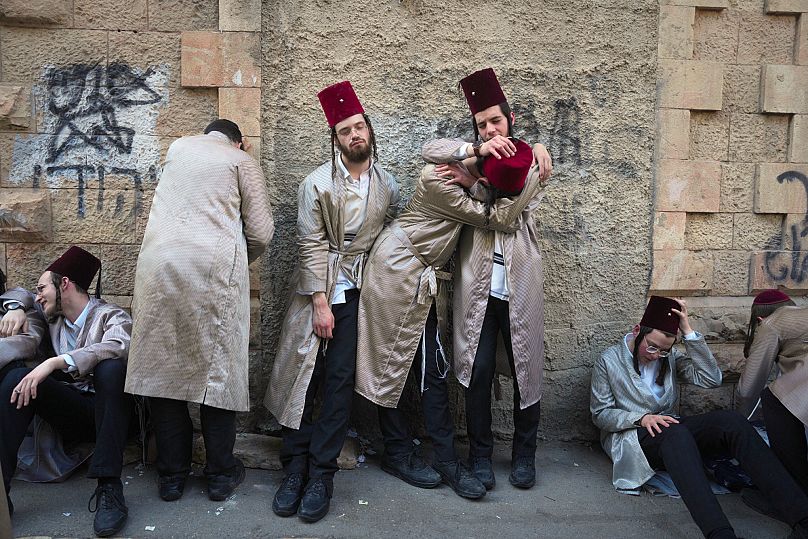The Swedish government described the situation as alarming and said it has put in place a number of efforts to increase security for Jewish organisations, institutions and events.
A planned film festival dedicated to new Jewish films has been cancelled in Malmö, Sweden's third-largest city, after organisers said they were unable to secure a venue following safety concerns.
 ADVERTISEMENT
ADVERTISEMENT
 ADVERTISEMENT
ADVERTISEMENT
According to organisers of the Jewish International Film Festival (JIFF), both commercial movie theatre owners and the non-profit Panora cinema agreed not to host the event.
"A couple of them referred specifically to security reasons. There's concern that something might happen," said OlaTedin, one of the festival's organisers.
The news has been met with shock from organisers and Swedish authorities.
"At first, I was incredibly angry. I actually had a hard time accepting it," said Sofia Nerbrand, one of the organisers.
"Now it has sunk in a little, but it's still completely outrageous. I think it's incredibly tragic that it has come to this."
Cinemas stand by their decision
Major movie theatre chain Filmstaden confirmed the choice not to grant their venues for use in the festival. Irene Hernberg, PR manager at Filmstaden Norden, wrote, "It was not an easy decision, but we prioritise the safety of our staff."
For Panora, their decision was due to workload issues. They said they had already decided not to accept new festivals or larger events.
Organisers of the JIFF said they also approached Folkets Hus, a local theatre that has previously hosted film screenings, which was available during the festival dates.
However, the board also declined on security grounds.
Sweden's government calls situation 'a catastrophe'
The Swedish government described the situation as alarming and said it has put in place "several efforts" to increase security for Jewish organisations, institutions and events.
According to Parisa Liljestrand, Sweden's Minister for Culture, "This is an absolute catastrophe for the Swedish society."
"It is, of course, alarming that we have reached this point, that one of our national minorities feels so vulnerable and that organisers believe it is not possible to arrange events and cultural activities with Jewish content."
"What can then be done for the cinema owners in Malmö to feel safer?" Liljestrand saked, saying that the government has made several efforts to increase security.
The film festival had been planned as part of the events to celebrate the Jewish minority's 250th anniversary in Sweden this year.
This summer, a letter signed by more than 100 European rabbis and sent to the European Commission warned that "increased security provisions" were "urgently" needed and that Europe was experiencing "visceral antisemitic hate" since the Hamas-led attack on Israel on 7 October 2023.
Security concerns for vulnerable or minority communities are, however, not unusual for Malmö, a city that has seen much unrest, violence and anti-Israel agitation over the years.
The once vibrant Jewish community has dwindled over the years due to safety concerns and a soccer match involving an Israeli team had to be played in an empty, closed-off stadium in 2009.












